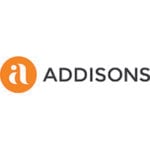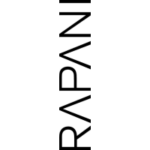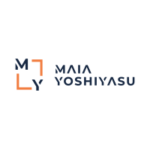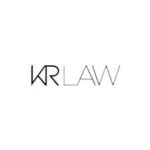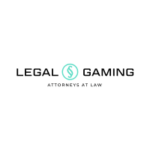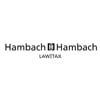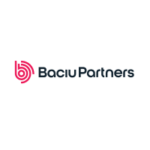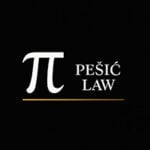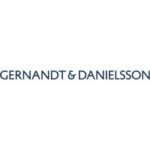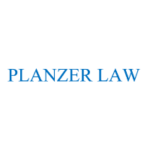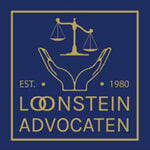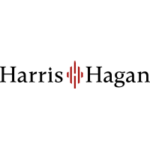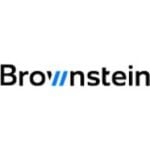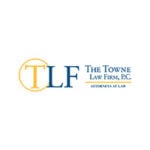-
What is the legal definition of gambling?
Curacao law defines ‘Games of Chance’ as follows:
“Game of Chance” means any game in which one or more players, in exchange for the payment of money or monetary value, compete for prizes in the form of money or monetary value, and the outcome of which is determined either by chance only or by a combination of chance and players’ insight or skill, with no possibility for players to significantly influence the outcome, including sportsbetting and poker;
“Remote Game of Chance” means a Game of Chance provided remotely by means of electronic communication devices, and played without physical contact with the party providing the game.
-
What legislation applies to gambling? Please provide a summary of the legal/regulatory framework.
As of December 24, 2024, the Landsverordening op de kansspelen (LOK) — or National Ordinance on Games of Chance — officially took effect, marking a major milestone in the reform of Curaçao’s online gaming framework.
The LOK aims to modernize regulation across the industry by creating a safer, more transparent, and better-governed environment for all stakeholders also improving Curacao’s reputation and credibility as a hub for online gambling. It builds on reforms initiated in November 2023 by the Curaçao Gaming Authority (CGA), acting on behalf of the Minister of Finance, to address longstanding structural and oversight challenges within the sector.
Under the new legislation, the Gaming Control Board (GCB) will now operate as the Curaçao Gaming Authority, reinforcing its independence and authority over online gaming activities.
Previous Framework
Before the LOK, the online gaming industry operated under the Landsverordening buitengaatse hazardspelen (LBH) — the National Ordinance on Offshore Games of Hazard.
In 2019, responsibility for licensing and supervision under the LBH shifted to the Minister of Finance. From March 2020 until the LOK’s enactment, the CGA managed online gaming licenses on the Minister’s behalf. Beginning in late 2023, the CGA initiated phased reforms to prepare for the transition to the new framework, which is now applicable.
-
Which body/ies regulate gambling?
Curacao Gaming Authority
The CGA now licenses and supervises all B2C operators (online casinos, sportsbooks, etc.) and B2B suppliers (software providers, hosting, payment services).
It enforces compliance with the new LOK framework, which replaces the old “master/sub-license” system from the LBH.
The CGA also retains the responsibilities previously held by the GCB for land-based casinos, meaning it now regulates both the physical and online gambling sectors.
The CGA operates on behalf of the Minister of Finance, but with greater operational independence and transparency requirements — a key part of Curaçao’s reform to align with international AML/CFT and gaming integrity standards.
-
Are licences available? If so: a) What is the duration of a licence? b) What types of licences are available? c) Are there different types of licences for B2C and B2B operators? d) Do software suppliers need to be licensed?
B2B and B2C (Online) licenses are issued for an indefinite period subject to ongoing compliance and the payment of fees.
B2B licenses cover the provision of gaming software and critical gaming services.
B2C licenses cover gaming operations.
-
Are any types of gambling products prohibited?
The LOK (National Ordinance on Games of Chance) prohibits several specific forms of gambling and certain practices.
Prohibited Types of Gambling and Practices
A licensed operator must not offer the following:
- Games based on disasters or human exploitation: Any game whose outcome depends, in whole or in part, on actual events relating to a disaster, crisis, exploitation, or abuse of human beings or animals, or any event endangering human or animal life.
- Dishonorable or offensive games: Games that are dishonorable or offensive under Curaçao’s Criminal Code are prohibited.
- Credit gambling: Operators may not offer games on credit or act as intermediaries in providing credit to players.
- Underage and vulnerable players: It is illegal to allow persons under 18, or other vulnerable persons (e.g., those with gambling addictions or under bankruptcy), to play.
-
What is the headline application procedure? Please include any eligibility and other application requirements, including approximate application costs and any need to establish a local presence.
The licensing procedure is based on integrity, fitness & properness, business readiness, internal policies and procedures.
B2C (Gaming License – Remote Games of Chance)
The process happens in two phases:
Phase 1 – Integrity and Financial Review
- The CGA (formerly GCB) must decide within 8 weeks after receiving all required information and documentation.
- This deadline can be extended once by up to 4 weeks.
- KYC, Source of Funds, Financial Documentation is provided at this stage.
Phase 2 – Full Compliance Review
- After Phase 1 approval, the applicant submits additional documentation such as Policies and Procedures, Technical Documentation.
- The CGA must then issue or deny the full licence within 8 weeks after receiving the complete application.
- Again, this period may be extended once by up to 4 weeks.
Provisional Licence Option
- While the Phase 2 review is pending, the CGA may issue a provisional licence valid for up to 6 months, extendable by another 6 months
Total possible processing time (excluding applicant delays):
- Phase 1: 8 + 4 weeks
- Phase 2: 8 + 4 weeks.
Up to 24 weeks ( 6 months) from complete submission to final decision, plus optional provisional operation.
B2B (Supplier License – Critical Services or Goods)
- The CGA must decide on a Supplier Licence within 8 weeks after receiving the full application.
- This period may be extended by up to another 8 weeks.
Maximum total decision time: 16 weeks (4 months) from a complete application.
The applicable fees for Curaçao gaming licences are as follows:
Application Fees
Gaming Licence
- Base application fee: EUR 4,592
- Plus EUR 150 for each Ultimate Beneficial Owner (UBO)
- Plus EUR 128 for each holder of a Qualified Interest
- Plus EUR 2,551 for each listed UBO
Supplier Licence (Article 5.13)
- Base application fee: EUR 4,592
- Plus EUR 150 for each UBO
- Plus EUR 128 for each holder of a Qualified Interest
- Plus EUR 2,551 for each listed UBO
Certificate (Article 5.17) – typically for non-critical suppliers: EUR 383
Other Application Fees
- Extend/replace approved games: EUR 13 per game
- Add a registered domain or software application: EUR 250 per domain/app
- Change in Qualified Interest holder: EUR 128 each
- Add or change a UBO: EUR 128 each
Annual Licence Fees
Licences are subject to two annual components:
a. A flat fee payable to the CGA (for compliance monitoring)
b. A flat fee payable to the National Treasury (for holding the licence)Specific amounts:
For an Online Gaming Licence
- EUR 22,960 per year (CGA fee)
- EUR 24,490 per year (Treasury fee)
For a Supplier Licence
- EUR 24,490 per year (CGA fee)
These fees may be adjusted annually by national decree or ministerial regulation to reflect changes in Curaçao’s consumer price index
Applicants are required to have local substance, including local resident key roles, local servers and a locally rented office.
-
Do individuals within the business need to be personally licensed or authorised? If so, please provide headline requirements.
Individuals within the business are required to be fit & proper. Such must prove the relevant experience, acceptable to the CGA, and be authorised as part of the application process. Key Roles are to be notified to the regulator and approved thereby.
-
Is advertising of gambling permitted and, if permitted, how is it regulated?
Advertising is permitted, but it is strictly regulated under the LOK.
The Curaçao Gaming Authority (CGA) allows licensees to advertise their gaming services only in compliance with responsible gambling, consumer protection, and integrity standards.
The LOK sets clear conditions which govern the “advertising, promotion, and sponsorship” of games of chance.
The relevant parts provide that:
- A licensee may advertise, promote, or sponsor games of chance only in accordance with the principles of responsible, fair, and transparent communication.
- Advertising must not target minors or vulnerable persons, and must not encourage excessive or irresponsible participation.
- Advertising materials must clearly identify the licensee and must not be misleading regarding the nature or odds of the games offered.
- The CGA is empowered to issue further regulations governing content, timing, placement, and delivery of advertising (for example, rules on social media or cross-border promotion).
- The CGA may prohibit advertising that violates these principles or public morals, and may sanction non-compliant operators (administrative enforcement).
Prohibited Advertising Practices
Under the LOK framework, operators must not:
- Directly or indirectly target minors (under 18 years old) or vulnerable persons.
- Use false or misleading claims about winning chances or risk levels.
- Portray gambling as a solution to financial problems or as a path to success.
- Advertise in a way that conceals the requirement of licensing or misrepresents Curaçao jurisdiction.
- Sponsor events or media that violate Curaçao’s public decency or health standards.
Oversight and Sanctions
The CGA supervises all gambling advertising “in or from Curaçao.”
Violations can lead to:
- Administrative orders
- Suspension or revocation of licence
- Fines or corrective orders under Chapter 13 (“Remedial Sanctions”)
-
Are marketing affiliates permitted? If so, are they licensed or regulated?
Affiliates are permitted and are not licensed or specifically regulated.
-
What are the penalties for offering, facilitating or marketing unlawful gambling, and can the gambler be penalised for participating in unlawful gambling?
The LOK sets out detailed criminal and administrative penalties for unlawful gambling, including offering, facilitating, or marketing such activities.
1. Criminal Penalties
Article 13.40(1)
“An action in violation of any of the rules provided in or under Article 1.2, first, second, third, and fifth paragraphs, Article 1.3, Article 1.4, Article 1.5, Article 2.4, third paragraph, Article 2.5, sixth paragraph, Article 4.1, seventh paragraph, tenth paragraph, and eleventh paragraph, and Article 5.16, fourth paragraph, will be punished by detention of up to one year and a fifth-category fine, or either of these punishments.”Article 13.40(2)
“Any deliberate action in violation of the rules mentioned in the first paragraph will be punished by imprisonment for up to four years and a sixth-category fine, or either of these punishments.”Article 13.40(3)
“The actions made punishable in the first paragraph are infractions, and the actions made punishable in the second paragraph are criminal offenses.”- Unlicensed or unauthorized offering, facilitating, or marketing of games of chance is a criminal offense.
- If done knowingly or intentionally, imprisonment can reach up to 4 years, with a sixth-category fine (the highest fine class under Curaçao law).
- Even non-intentional violations are punishable as infractions with up to 1 year’s detention and a fifth-category fine.
2. Administrative Penalties
The Curaçao Gaming Authority (CGA) also has administrative enforcement powers:
“The CGA may impose a corrective order subject to a non-compliance penalty in the event of violation of any of the rules provided in or under Article 1.2, … Article 1.5 … Article 5.6, Article 5.8 …”
“The CGA may impose an administrative fine in the event of violation of any of the rules provided in or under Article 1.2 … Article 1.5 …”
The CGA can issue:
- Corrective orders (to stop or remedy illegal activity);
- Administrative fines for breaches such as unlicensed operation or advertising; and
- Non-compliance penalties if operators ignore orders.
These measures apply in addition to criminal prosecution.
3. Enforcement Cooperation
“In the event of concurrence of administrative enforcement and criminal law enforcement, a decision will be made in consultation with the Prosecutor’s Office.”
Meaning:
- The CGA and the Public Prosecutor may coordinate — e.g., CGA sanctions first, then criminal charges for repeat or serious offenses.
Penalties for the Gambler (Participants)
Curacao Law does not impose direct criminal or administrative penalties on individual players who merely participate in unlicensed or unlawful games of chance.
The obligations, offences, and sanctions apply to:
- Licensees,
- Applicants,
- Suppliers (B2B), and
- Other persons or entities offering or facilitating games without authorization.
There is no article penalising gamblers for participating in unlawful gaming. The player’s protection and complaint rights are instead governed by Article 5.3 (responsible gaming) and Article 5.4 (protection of vulnerable persons)
-
Briefly detail key requirements for licensees.
1. Integrity and Suitability Requirements
Article 2.1 – Article 2.4
- A gaming licence may only be granted if the applicant and its Ultimate Beneficial Owners (UBOs), directors, and key persons are of sound integrity and good reputation.
- The Curaçao Gaming Authority (CGA) conducts an integrity assessment, including financial and criminal background checks.
- The licence must be refused or revoked if integrity standards are not met (Art. 2.4 (1) – (2)).
2. Fit and Proper Management and Control
Article 2.5 – 2.7
- The applicant must have a transparent ownership structure, clear decision-making lines, and an effective board and compliance function.
- Licensees must ensure that managers, controllers, and compliance officers remain suitable throughout the licence term.
- Changes to the control structure, UBOs, or key functionaries must be notified to and approved by the CGA
3. Financial Soundness and Local Establishment
- Applicants must demonstrate financial stability and the capacity to meet obligations to players and the CGA.
- A licensee must have a registered office in Curaçao, maintain local representation, and keep accounts in Curaçao.
- Financial resources must be verifiable and derived from legitimate sources.
4. Player Protection and Responsible Gaming
- Licensees must ensure responsible gaming policies are in place, including measures to prevent gambling addiction.
- Participation by minors (under 18) and other vulnerable persons is prohibited.
- Operators must provide tools for player self-exclusion, deposit limits, and access to help resources.
5. Anti-Money Laundering (AML) and Counter-Terrorist Financing (CTF)
- Licensees must comply with Curaçao’s AML/CFT framework, including customer due diligence, transaction monitoring, and reporting suspicious activity to the Financial Intelligence Unit (FIU).
- They must designate a compliance officer responsible for AML/CTF oversight
6. Technical and Operational Standards
- Games and systems must be fair, secure, and auditable, with certified random number generators (RNGs) and approved software.
- The CGA may inspect, audit, or require third-party certification of systems.
- Licensees must maintain detailed logs of transactions and game outcomes.
7. Advertising and Bonuses
- Marketing and bonuses must be fair, transparent, and socially responsible.
- Advertising cannot target minors or vulnerable persons and must not encourage excessive or irresponsible gambling.
- The CGA may issue further rules on content, placement, and sponsorship.
8. Reporting and Supervision
- Licensees must submit periodic reports on operations, compliance, and financial performance to the CGA.
- They must grant the CGA access to all data and systems for supervision.
- Material changes in operations or corporate structure must be pre-approved by the CGA.
9. Fees and Levies
Licensees must pay:
- An application fee upon applying; and
- Annual licence fees to both the CGA and the National Treasury.
Payments must be made electronically and on time; failure to do so may lead to enforcement.
10. Ongoing Compliance and Sanctions
- Licensees must continuously comply with the LOK and any secondary regulations issued by the CGA.
- Non-compliance may result in:
- Administrative orders
- Fines,
- Suspension or revocation of the licence, or
- Criminal prosecution for serious breaches.
The LOK imposes a robust framework requiring that all licensees:
- are fit, proper, and financially sound,
- operate transparently and responsibly,
- protect players and prevent AML/CTF risks, and
- remain subject to continuous CGA supervision.
-
Briefly detail key anti-money laundering requirements.
Effective April 10 2025 after a three-month transition, the GCB’s AML Regulations form a mandatory component of Curaçao’s casino licensing regime. Rooted in the National Ordinances on Identification (NOIS) and Reporting of Unusual Transactions (NORUT), and the Sanctions National Ordinance and Kingdom Sanctions Act, they align Curaçao with FATF standards. The framework seeks to prevent the use of casinos for money laundering (ML), terrorist financing (TF), and proliferation financing (PF), supported by severe administrative and criminal penalties for non-compliance.
Casinos must assess, document, and mitigate risks proportional to exposure. Two assessments are central:
- Business Risk Assessment (BRA): Annual or event-driven evaluation of threats by customer type, geography, products, and delivery channels.
- Customer Risk Assessment (CRA): Player-specific profiling to assign low, medium, or high risk, integrated into a Customer Acceptance Policy (CAP) that defines when service is refused.
Sector-Specific Risk Factors
Four major areas shape risk:
- Customer: e.g., PEPs, high-spenders, anonymous or third-party users.
- Geography: players from sanctioned or high-corruption jurisdictions.
- Product/Transaction: cash use, prepaid cards, e-wallets, peer-to-peer games.
- Delivery Channel: non-face-to-face or third-party intermediated interactions.
Casinos must also assess technological innovations before launch to ensure safeguards.
Customer Due Diligence (CDD) :
CDD is mandatory for transactions ≥ NAf 4,000 (Eur 1,926)) or when suspicion arises.
Measures include:
- Identifying and verifying players and beneficial owners using reliable documents;
- Determining business purpose, source of funds, and wealth;
- Ongoing monitoring of activity and identity changes. Enhanced Due Diligence (EDD) applies to high-risk customers (e.g., PEPs, new tech users (Crypto)), while Simplified Due Diligence is allowed in low-risk contexts. Casinos may terminate relationships if CDD cannot be completed or rely on third parties only under strict conditions.
Casinos must recognize, document, and report unusual transactions (UTRs) to the FIU IN Curaçao via the goAML portal without delay. Triggers include:
- Transactions ≥ NAf 5,000 (Eur €2,406);
- Dealings with sanctioned entities; or
- Transactions suspected of ML/TF.
Disclosure to customers (“tipping off”) is strictly prohibited. Records of all transactions and CDD data must be retained for at least five years and made available to authorities.
Every casino must implement a comprehensive AML program including:
- Internal policies and controls;
- A designated Compliance Officer independent from operations, with direct access to records;
- Employee screening and ongoing training for all operational levels, emphasizing suspicious transaction recognition and CDD procedures;
- Independent annual audits by qualified professionals to test program effectiveness.
The GCB conducts examinations and may review risk assessments, UTR logs, frozen accounts, and audit findings. Foreign subsidiaries must adopt equivalent standards.
-
Briefly detail key responsible gambling (or safer gambling) requirements.
The 2025 Responsible Gaming Policy issued by the Curaçao Gaming Authority (CGA) establishes a mandatory framework for online gaming operators licensed under the National Ordinance on Games of Chance (LOK). Its purpose is to ensure gambling remains a recreational activity while protecting minors and Vulnerable Persons from harm, addiction, and exploitation. The policy applies to all B2C operators holding a CGA licence, with adherence forming a condition of licence compliance.
Operators must integrate responsible gaming practices into every facet of operations. This includes publishing a visible and comprehensible Responsible Gaming (RG) policy, offering effective player protection tools, maintaining transparent reporting and monitoring mechanisms, and strictly prohibiting credit-based wagering. The policy is enforceable under the LOK, and violations can lead to disciplinary action by the CGA.
Operators engaged in high-risk models—such as cryptocurrency use, agent systems, or VIP programs—must apply enhanced controls proportionate to their risk exposure. Non-retail or professional gambling models remain bound by the same responsible gaming principles.
Nine elements are required for full compliance:
- Age verification
- Information accessibility
- Player self-assessments
- Behaviour tracking
- Cooling-off periods
- Self-exclusion
- Deposit limits
- Advertising and marketing controls
- Employee training
Each operator must appoint a Responsible Gaming Officer (or equivalent Compliance Officer) to oversee implementation, report annually to management, and submit updates to the CGA.
Operators must prevent access by anyone under 18 using multi-level age verification—including ID document checks, electronic verification, and government database cross-references. Accounts belonging to minors must be immediately closed, with deposits refunded and winnings voided
Each site must have a dedicated, clearly labelled Responsible Gaming section—accessible from the homepage, footer, and terms & conditions—available in English and local languages. It must include self-help tools, contact details, and links to support organizations such as GamCare or GambleAware
Operators are required to track behaviour using data analytics or AI to identify high-risk patterns such as frequent deposits, reversed withdrawals, or extended play. Frontline staff and VIP managers must escalate concerns through documented processes in the Player Account Management system.
Interventions may include temporary suspension, setting mandatory limits, or operator-initiated exclusion, but must never be used to obstruct withdrawals or delay payments
Player-Controlled Safeguards
- Cooling-Off Periods: Temporary restrictions (24 hours – 3 months) that block wagering but allow withdrawals.
- Self-Exclusion: Long-term or lifetime bans (1 – 10 years or permanent) covering all brands under the operator’s licence. Both options must be self-initiated online, immediate in effect, and free from operator persuasion.
- Deposit Limits: Players can set daily, weekly, or monthly caps; increases take effect after 24 hours, while stricter limits apply instantly.
- Reality Checks: Optional real-time reminders and session timers to promote awareness of play duration and losses
Training, Advertising, and Enhanced Measures
Staff with customer interaction duties must undergo periodic Responsible Gaming training, including recognition of distress signs and referral procedures.
Advertising must avoid targeting vulnerable groups, using minors, implying gambling as an investment, or featuring sexual or misleading content. All marketing must carry a Responsible Gaming message
High-risk operators may adopt enhanced safeguards, such as website-blocking software links (e.g., BetBlocker, GamBlock, Gamban), AI-driven pop-ups, or direct human outreach to players exhibiting concerning behaviour.
-
Briefly detail shareholder reporting and approval threshold(s).
Anyone with a “qualified interest”—defined as a direct or indirect interest of at least 10% of issued capital or voting rights (or comparable control)—falls into CGA scope.
This involves standard KYC, fit & proper tests as well as Source of Funds and Source of Wealth Checks.
-
Briefly detail the regulator’s enforcement powers, including sanctions.
The CGA is an independent administrative authority responsible for implementing, supervising, and enforcing gaming laws and license conditions.
Coverage
The CGA supervises:
- All gaming licensees (both land-based and remote),
- Suppliers and certified service providers,
- Key Persons, UBOs, and Qualified Interest holders (≥10%),
- Nonprofit games of chance, and
- All forms of games falling under Curaçao jurisdiction.
The CGA and its designated inspectors have broad investigative authority, including:
- Access and inspection rights:
- Request any data, documents, or information.
- Inspect or copy books, records, and digital data.
- Examine and seize objects for inspection.
- Enter business premises (and residences with a warrant).
- Inspect vessels, vehicles, and equipment used for gaming.
- Assistance obligations: Everyone must cooperate with inspectors and provide information on request.
- Information sharing:
- The CGA may exchange confidential data with foreign regulators, the Tax Inspectorate, and the Public Prosecutor, if necessary and under confidentiality safeguards (Art. 13.2).
- It may launch investigations into any person reasonably believed to hold relevant information.
Remedial (Administrative) Sanctions
The CGA has three main types of non-criminal enforcement powers, allowing it to act directly against violations of the LOK or license conditions.
Corrective Order with Noncompliance Penalty
- The CGA may issue an order to remedy a violation and impose a financial penalty for noncompliance.
- Penalties can be:
- Lump sums, per-day, or per-violation amounts.
These must be proportionate to the seriousness of the offense.
Unpaid penalties are collected via the national tax collector and accrue legal interest.
The CGA can reduce, suspend, or revoke penalties if compliance becomes impossible.
Corrective Order with Administrative Coercion
- Allows the CGA to physically enforce compliance — e.g., shutting down websites, seizing servers, sealing premises, or removing gaming equipment.
- Costs are charged to the violator.
- Can be used immediately if there’s a risk to public order or players.
- The CGA may also destroy or sell seized items and remit proceeds to the Treasury.
Instructions and Warnings
- The CGA can issue binding instructions directing a violator to take or refrain from specific actions within a set timeframe.
- If ignored:
- The instruction can be publicly disclosed via newspapers and the CGA website.
- The violator bears publication costs.
- Public correction notices must also be published once compliance is achieved.
Punitive Sanctions (Administrative Fines)
The CGA can impose administrative fines as punitive measures, separate from remedial actions.
- Procedure: The violator is first notified, may submit a written defense, and is not obliged to self-incriminate.
- Maximum fine: Equivalent to a sixth-category criminal fine under the Curaçao Criminal Code
- Criteria: Adjusted for:
- Severity of violation,
- Degree of culpability,
- Circumstances and history of the licensee.
- Double jeopardy bar: No administrative fine if criminal prosecution is ongoing for the same act.
Criminal Enforcement
Certain violations are criminal offenses, punishable under the Curaçao Criminal Code:
- General violations – Up to 1 year detention or fifth-category fine
- Deliberate violations – Up to 4 years imprisonment or sixth-category fine
The Prosecutor’s Office handles criminal prosecution.
The CGA may refer matters to the prosecutor and cooperate in investigations.
Cooperation and International Reach
- The CGA may establish cooperation protocols with foreign gaming regulators and other oversight bodies to enhance compliance monitoring and cross-border enforcement.
- It may share information internationally under strict confidentiality safeguards.
Key Enforcement Triggers
The CGA can initiate enforcement or revocation if, for example:
- A licensee violates the LOK or its license conditions;
- False or misleading information is provided;
- Failure to notify / breach of regulatory provisions
- Player funds are misused or unpaid;
- AML/CFT or sanctions regulations are breached;
- There’s noncompliance with reporting or recordkeeping obligations.
-
What is the tax rate?
If the relevant company qualifies for the relevant tax breaks, by complying with Curacao substance requirements, corporate tax is reduced to 0-2%. No gaming tax applies.
-
Are there any proposals for changing gambling laws and regulations in the next 12-24 months? If so, please provide an overview of the proposed changes and likely timing.
There are no proposals to change the relevant laws which have recently come into force and are currently being implemented. The Curacao Gaming Authority is in the process of bringing forward various sector specific compliance policies and procedures which are now applicable to the industry, such as those related to AML, Substance Requirements, Responsible Gaming and similar.
-
What key regulatory developments are proposed or on the horizon in the next 12-24 months?
The LOK regime is currently in its first year of implementation. Laws are not envisaged to change imminently, yet the Curacao Gaming Authority, as empowered by the ministry of finance and general government, is in the process of drafting and rolling out various industry specific policies together with applicable compliance timelines.
-
Do you foresee any imminent risks to the growth of the gambling market in your jurisdiction?
Not particularly, however the entire regime is new. We are yet to see how operators and providers will comply in practice, and if such will become aligned to the new, more detailed legal framework currently coming into play.
-
If a gambling start-up was looking for a jurisdiction in which to commence its activities, why would it choose yours?
Until recently, Curaçao had a reputation for being light-touch and low-cost, but the LOK (effective 2025) modernizes and strengthens its system to EU- and FATF-compliant standards.
For a start-up, this shift is appealing because it offers:
Regulatory credibility: The CGA is now an independent statutory authority with integrity, AML, player-protection, and fit-and-proper requirements.
Continuity with modernization: The new regime replaces the old “master-sub-license” model with direct CGA licensing, making Curaçao’s framework more legitimate in the eyes of banks, PSPs, and partners.
Curacao licenses are accepted by various counterparties, around the world.
The jurisdiction is currently fiscally advantageous and working on multilateral relations, globally.
While stricter than before, Curaçao’s regime remains commercially pragmatic and cost effective, keeping startups in mind.
Curaçao offers straightforward incorporation procedures, access to professional service providers, and a competitive tax regime. While the new law introduces “substance” requirements (e.g., local Key Persons and office presence), these are attainable and designed to encourage genuine operations — giving compliant start-ups a credible regulatory home without prohibitive barriers.
Curacao: Gambling Law
This country-specific Q&A provides an overview of Gambling laws and regulations applicable in Curacao.
-
What is the legal definition of gambling?
-
What legislation applies to gambling? Please provide a summary of the legal/regulatory framework.
-
Which body/ies regulate gambling?
-
Are licences available? If so: a) What is the duration of a licence? b) What types of licences are available? c) Are there different types of licences for B2C and B2B operators? d) Do software suppliers need to be licensed?
-
Are any types of gambling products prohibited?
-
What is the headline application procedure? Please include any eligibility and other application requirements, including approximate application costs and any need to establish a local presence.
-
Do individuals within the business need to be personally licensed or authorised? If so, please provide headline requirements.
-
Is advertising of gambling permitted and, if permitted, how is it regulated?
-
Are marketing affiliates permitted? If so, are they licensed or regulated?
-
What are the penalties for offering, facilitating or marketing unlawful gambling, and can the gambler be penalised for participating in unlawful gambling?
-
Briefly detail key requirements for licensees.
-
Briefly detail key anti-money laundering requirements.
-
Briefly detail key responsible gambling (or safer gambling) requirements.
-
Briefly detail shareholder reporting and approval threshold(s).
-
Briefly detail the regulator’s enforcement powers, including sanctions.
-
What is the tax rate?
-
Are there any proposals for changing gambling laws and regulations in the next 12-24 months? If so, please provide an overview of the proposed changes and likely timing.
-
What key regulatory developments are proposed or on the horizon in the next 12-24 months?
-
Do you foresee any imminent risks to the growth of the gambling market in your jurisdiction?
-
If a gambling start-up was looking for a jurisdiction in which to commence its activities, why would it choose yours?
